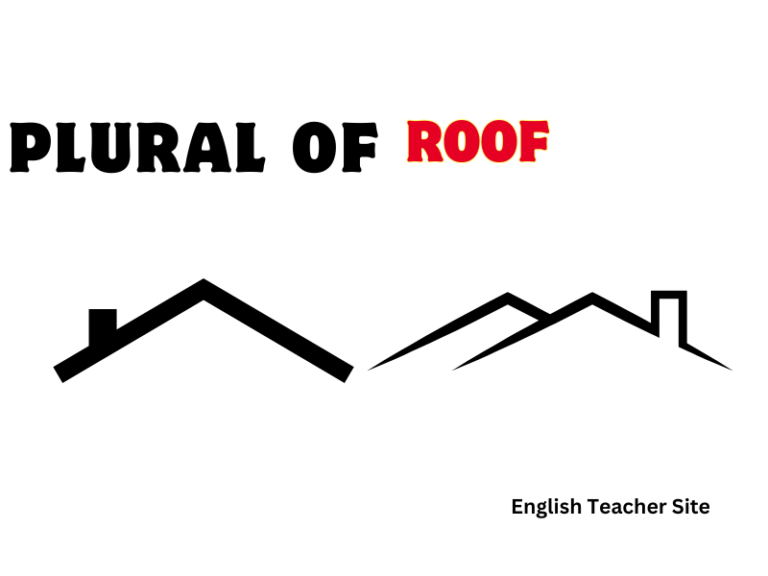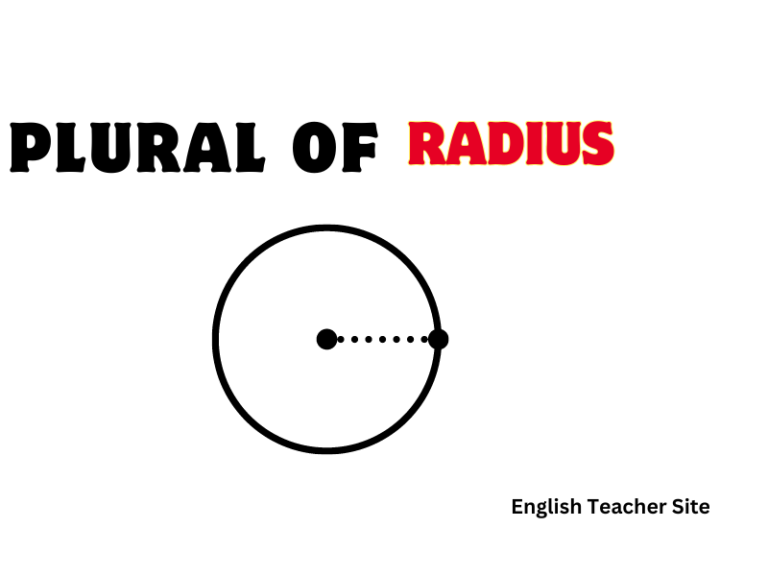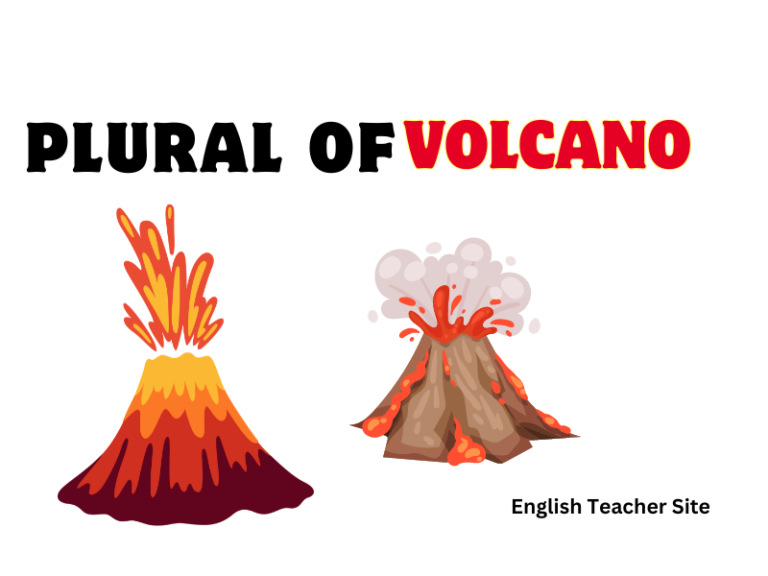What’s the Plural of Apex: Understanding Variations in English Nouns

- “Apex” can be pluralized to “apices” following traditional Latin rules, or to “apexes” as accepted in modern English.
- The word denotes the highest point and retains its meaning in both singular and plural forms.
- Language evolution allows for multiple correct pluralizations, reflecting both original and adapted linguistic norms.
The plural form of the word “apex” can cause some confusion due to its Latin origins. While in English, we regularly form plurals by adding an -es or -s to the end of a noun, words from Latin follow different rules. “Apex” refers to the very top or highest point of something, such as a mountain or a career, and in its journey from Latin to English, the word has acquired two acceptable plural forms.
What’s the Plural of Apex?
There are two correct plural forms for the word “apex”:
Apices
- Origin: Latin
- Usage: More formal, less common in everyday English
Apexes
- Origin: English adaptation
- Usage: More common, especially in informal contexts
Here are some considerations when deciding which plural form to use:
| Form | When to Use | Example |
|---|---|---|
| Apices | Academic writing, professional settings | The apices of the crystals were carefully measured. |
| Apexes | General use, informal writing | The mountains had snow-covered apexes even in summer. |
When incorporating these terms into writing, consider the audience and context. Use apices when a more scholarly tone is required, or use apexes for general purposes.
Words from Latin and Greek often have plural forms that may seem unusual. Several examples include:
- Datum to data
- Radius to radii
What’s the Singular of Apex?
Characteristics of the singular form “apex” include:
- The use in describing a single peak or summit.
- Its occurrence as the subject or object in a sentence referring to one thing.
Let’s examine how “apex” is used in sentences:
| Singular Usage | Example Sentences |
|---|---|
| Subject of a sentence | The apex of the mountain is covered in snow. |
| Direct object | An observer can see the apex clearly on a sunny day. |
| Indirect object | The climber gave the apex a symbolic flag. |
| Prepositional object | The architect drew inspiration from the apex of ancient pyramids. |
The singular form, apex, is maintained across various grammatical roles, as shown in the examples below:
- As a Noun: She reached the apex of her career.
- As an Adjective: Apex predators are at the top of the food chain.
What Does the Word Apex/Apexes Mean?
The term apex singularly denotes the highest or most elevated point of an object or entity. When discussing geometric shapes, natural formations like mountains, or metaphorically, to describe the pinnacle of an individual’s career, “apex” effectively captures the summit of these contexts. On the other hand, “apexes” or apices serve as its plural forms, extending the same concept to multiple instances or items.
The word “apex” stems from Latin, with its root apic implying a ‘peak’ or ‘tip’. It is a word frequently used across various disciplines to highlight a culmination or a point of greatest success or significance.
The meaning of “apex” can be categorized as follows:
| Context | Meaning |
|---|---|
| Geographical | The highest point of a mountain or hill. |
| Anatomical | The tip of an organ, like the apex of the heart. |
| Career | The point of greatest achievement or success. |
| Mathematics | The highest point in a geometric shape. |
In various usages, “apex” and “apexes” may convey:
- Physical peaks: Referring to tangible high points in topography or structures.
- Metaphorical heights: Symbolizing the zenith of abstract concepts like careers or efforts.
- Anatomical tips: Denoting specific points in anatomy, such as the apex of the lung.
Considering their grammatical roles, the words “apex” and “apexes” can be illustrated as:
- Singular: The apex of the mountain was shrouded in mist.
- Plural: The mountain range had several apexes, each uniquely defined by its surrounding terrain.
Other Irregular Plural Nouns
Children, feet, and teeth are classic examples of nouns that become plural through a change in the word itself, rather than by following regular pluralization rules. Here are a few groups of irregular plural nouns:
Irregular Plurals that Change Vowels
| Singular | Plural |
|---|---|
| Man | Men |
| Woman | Women |
| Tooth | Teeth |
| Foot | Feet |
These words change their internal vowel when they transition from singular to plural form.
Irregular Plurals Ending in “f” or “fe”
Some nouns ending in “f” or “fe” change these endings to “ves” in the plural form.
| Singular | Plural |
|---|---|
| Wolf | Wolves |
| Wife | Wives |
| Leaf | Leaves |
| Knife | Knives |
Other Patterns of Irregulation
- Nouns ending in “is” change to “es” in the plural form, e.g., analysis becomes analyses.
- Some nouns maintain the same form whether singular or plural, such as sheep and species.
- Foreign-origin words can retain their original pluralization form, for instance, criterion to criteria.
English also contains nouns that have two possible plural forms.
- Indexes and indices (from index)
- Appendixes and apices (from appendix)
Examples of the Word Apex Used in Sentences
Here are examples of how the singular noun “apex” is correctly employed:
- The mountain’s apex is covered with snow even during summer months.
- In her career, she reached the apex of her profession, respected by peers and competitors alike.
- The statue is designed with a tapering apex that points towards the sky.
The plural forms of “apex,” which are “apices” and “apexes,” also appear in various contexts. Below are two tables illustrating the use of both plural forms in sentences.
| “Apexes” in Sentences | “Apices” in Sentences |
|---|---|
| The pyramid’s multiple apexes glittered under the sun. | Cones have sharp apices by geometric definition. |
| Our project goals included reaching several strategic apexes throughout the quarter. | The leaf’s apices curled naturally as it dried. |
To further understand these plural forms, let’s look at some bullet-pointed examples in sentences:
“Apexes”:
- The roller coaster has three high apexes, giving riders a thrilling experience.
- Multiple towers with their individual apexes shape the city’s iconic skyline.
“Apices”:
- Each star in the constellation has multiple apices, giving them a twinkling effect.
- Biologists noted that the cells displayed elongated apices.
Examples of Apexes/Apices Used in Application
Natural Geography:
- The apexes of mountains often experience the harshest weather conditions.
- Glaciers carve out the apices of valleys, leaving distinctive U-shapes.
| Environment | Singular | Plural |
|---|---|---|
| Mountains | Apex | Apexes |
| Valleys | Apex | Apices |
Mathematics and Geometry:
- Cones have a single apex, whereas pyramids consist of several apices.
- The apices of an irregular polygon mark its sharpest angles.
| Shape | Singular | Plural |
|---|---|---|
| Cone | Apex | Apexes |
| Polygon | Apex | Apices |
Architecture:
- The apexes of Gothic arches contribute to their striking appearance.
- In the city skyline, skyscrapers’ apices stood out against the cloudy backdrop.
Plant Biology:
- The apices of leaves may exhibit damage from environmental stressors.
- Botanists study the growth patterns at the apex of plant stems.
Apices is also used in discussions of:
- Heart valves, where it describes the pointed ends.
- Dentistry, particularly in reference to the tip of the tooth root.
Origin of the Word Apex
| Latin Origin | Meaning in Latin |
|---|---|
| Apex | Summit, peak, tip, top, extreme end |
In the context of geometry or physical form, apex refers to the vertex or uppermost point, while in a metaphorical sense, it implies the zenith or climax of an event or series of actions.
- Anatomical reference: the apex of the heart
- Astronomical usage: solar apex, the direction of the sun’s path through space
The plural form of apex follows an irregular pattern, as captured by etymological sources. It holds two acceptable plural forms:
| Singular | Plural Forms |
|---|---|
| Apex | Apexes |
| Apex | Apices |
Preferred use cases for “apexes”:
- Geometrical shapes: cones, pyramids
- Anatomical terms: anatomical parts with pointed ends
Classical and scientific contexts often retain the traditional plural “apices.”
- Botanical terms: leaf apices
- Linguistic studies: ancient texts
Synonyms of Apex
The following table showcases common synonyms for apex and their usual applications:
| Synonym | Typical Context |
|---|---|
| Pinnacle | Often used to describe a high, narrow piece of land or the highest point of achievement or development. |
| Zenith | Refers to the time at which something is most powerful or successful. Also an astronomy term for the point in the sky directly above an observer. |
| Summit | Represents the highest point, particularly of a mountain or similar formation, as well as the highest level of diplomatic or other official meetings. |
| Crest | Used for the top of a hill or wave, and can also signify a point in time, such as a crisis, at which intensity is at its maximum. |
| Acme | Implies the highest point of perfection or achievement in skills or art. |
In text, these synonyms can enhance the description, for instance:
- “She reached the pinnacle of her career with her latest novel.”
- “The spacecraft approached the zenith of its research capabilities.”
- “After a strenuous climb, they finally arrived at the mountain’s summit.”
- “The fever broke as it hit its crest in the early morning hours.”
The related terms listed below highlight a range of applications for expressing the concept of the highest point or most intense moment of a process, phenomenon, or entity:
- Peak: Often used interchangeably with apex pertaining to mountains or graphed data points.
- Climax: Conveys the highest point in terms of plot or storyline, as well as the peak of excitement.
- Capstone: Suggests the crowning achievement or final stone laid in architecture, symbolizing completion and highest accomplishment.
To boldly emphasize the significance of an apex in various contexts, these synonyms can be quite effective in articulating the prominence and preeminence of a subject within discourse.
Sources
My name is Khamis Maiouf. I am the creator of the English Teacher Site, dedicated to providing valuable resources and insights for students around the world. With a passion for education and a commitment to helping students enhance their skills, I aim to make English teaching more effective and enjoyable for both educators and students.






